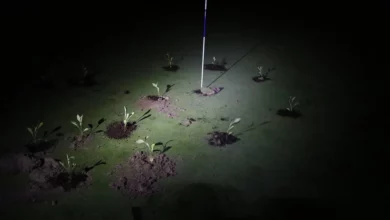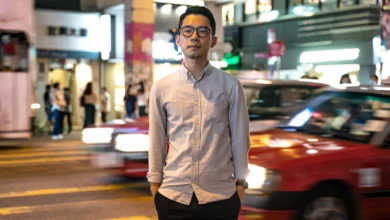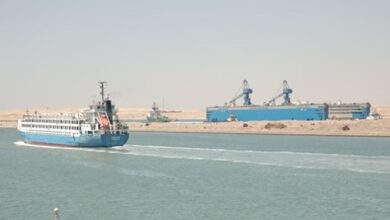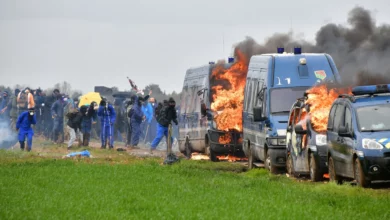Port Said–As tension, sectarian strife, and disagreements about the pending referendum disrupt the unified spirit that marked Egypt’s revolution, in this notable city, an array of activists are demonstrating what it looks like to band together even after a common enemy has fallen.
Empowerment is one of the most poignant themed of the 25 January Revolution. For once, the streets were littered with people trying to clean, instead of pollute, organizers mobilizing rather than state security dispersing, and people with ideas discussing instead of arguing.
But now with disagreements rife about the future of the country, a fight is being waged to preserve the values of the nation’s popular uprising.
In the period following Mubarak’s secession grassroots organizations immediately tried to redirect the revolutionary fervor to both preserving the gains achieved, and reversing the ailments inflicted during 30 years of oppressive rule.
Port Said, neighboring city to Suez and the canal, saw one of the more potent manifestations of this ideal through the creation of the Popular Association for the Protection of the Revolution.
The port city of 700,000 people has had a long history of political opposition under the Mubarak regime. Mubarak’s National Democratic Party (NDP) typically performed badly in parliamentary elections here. Mubarak, himself, survived an assassination attempt in Port Said in September 1999.
“This association is an open call for any and every organization–with the exception of the NDP and its affiliates–to join forces and coordinate our activities so we can work as one,” said member of the Organizational Committee Bakr Hassan Bakr.
The idea for the association began the day on 29 January, a day after the Friday of Anger when the city saw its people die for the sake of democratic change. The association officially launched with a celebration to honor the martyrs on 10 March, with its modest headquarters in Massalla Square, symbolically located opposite the governorate and State Security headquarters, still damaged and charred.
“I was a little discouraged at first. It felt like people were separating and disagreeing after the revolution. But now, as you see, we are a magnet for all grassroots organizations in the city working for the same cause,” Bakr said.
After work, a panoply of activists and social workers, both young and old, gather to coordinate activities.
“My group met during the protests in the revolution. We saw in each other a desire to change the country and decided to continue working in tandem after the revolution,” said Mohamed Hossam, 23.
Using Facebook, Hossam’s group, the Association of Port Said Youth, organizes activities to improve the city. They started with an initiative to clean the streets of Port Said, going to different parts of the city with nothing but cleaning materials and a sense of optimism.
“Despite having 1500 members on Facebook, we have a core group of 70 who are always active. People in the areas we go work in aren’t immediately responsive, but we continue working and others eventually join,” Hossam said. After cleaning, the group decided to diversify, spearheading initiatives to help orphans and senior citizens.
Hossam, who works with his father, a licensed marriage official, is now focused with the association on promoting awareness before Saturday’s referendum on constitutional amendments.
The association has been hard at work with all of the organizations under its umbrella to go out in the streets and raise awareness of the need to participate in the referendum. It only takes a five-minute glimpse into the organizational committee’s meetings to know that they overwhelmingly disapprove of the amendments. Most of those present, however, agree that calling for participation is their main goal.
“I personally believe we shouldn’t vote for the amendments. However my friends and I go out and talk to those who might not know what the referendum is about, even to tell them “Yes” is a correct answer and “No” is a correct answer, as long as they vote and understand why they have to vote,” said community organizer Mohamed al-Rayess, 26.
Al-Rayess heard about the association through friends, and though he does not belong to an official entity, he organizes social work and awareness campaigns informally with his friends.
The suddenness of the referendum has diverted much of the attention of these grassroots groups to awareness campaigns instead of social activism. One group under the Association’s umbrella, Alashanik Ya Port Said (For You Port Said) began with an integrated reform agenda. “We’re new and are working on all fronts. The group pinpointed the main problems ailing Port Said, and immediately worked on setting an agenda to fix them,” said group President Taha Abu Hashish, a 25 year-old paralegal.
“Before the revolution the president would’ve been chosen by experience, out of respect. But in the spirit of the revolution we had elections for president, and that’s why I am president,” said Abu Hashish.
The association is also working on one of Port Said’s most pressing problems–the Zirzara shantytown. The area is home to about 4200 families who were told to live in the shantytown in lieu of receiving government housing. Some families have been there for 17 years without having received any aid. The area is now a haven for drug dealers and thugs, while the families who still await housing live in sub-human conditions among open sewage and garbage.
“Our group has opened dialogue with the military leaders on how to solve the problem, and we have made a lot of progress,” said Sahar al-Shafei, a middle-aged early development specialist who is the group’s vice president.
The Association for the Protection of the Revolution has also made a goal of coordinating groups around Egypt. During their 16 March open panel for constitutional awareness, they invited groups from Cairo, such as the Association for Progressive Youth, to participate.
“National coordination is a long-term goal, although now we’re focused on consolidating our efforts in Port Said,” said Bakr.
Many of those joining the efforts are veteran activists in the community who see it as an opportunity to realize their long-term aspirations for an active community based on volunteerism. Ashraf Fahmy another of the association’s organizing committee members is a member of the group Kefaya, established in 2004 in opposition to Mubarak’s regime.
“We gain our legitimacy from being present. Egyptians are very intuitive, and know if you’re sincere or not. They have seen us on the street working hard, and that’s why we believe we’ll be able to do good work for Port Said,” he said.
Fahmy, who went on a hunger strike in 2010 in objection to the corruption he faced during his run for Parliament, thinks that the legitimacy of a group like the umbrella association comes from the sacrifices made during the revolution.
“That is why members of the association are already seen as legitimate representatives by both the people of the city, and its current military rulers,” he said.
All of the groups under the umbrella are mobilized to promote political awareness, but other pressing issues, such as the proliferation of thuggery and unsettling rumors of unrest and divisions in society, are also demanding their attention.
“We have a special committee to combat and dispel false rumors,” said Abu Hashish.
As is the case with the rest of the Egypt, the direction the Popular Association for the Protection of the Revolution will take depends heavily on the constitutional referendum Saturday. But the formation of the association and the undying zeal of its members serve as an encouraging platform for enduring activism and change.




